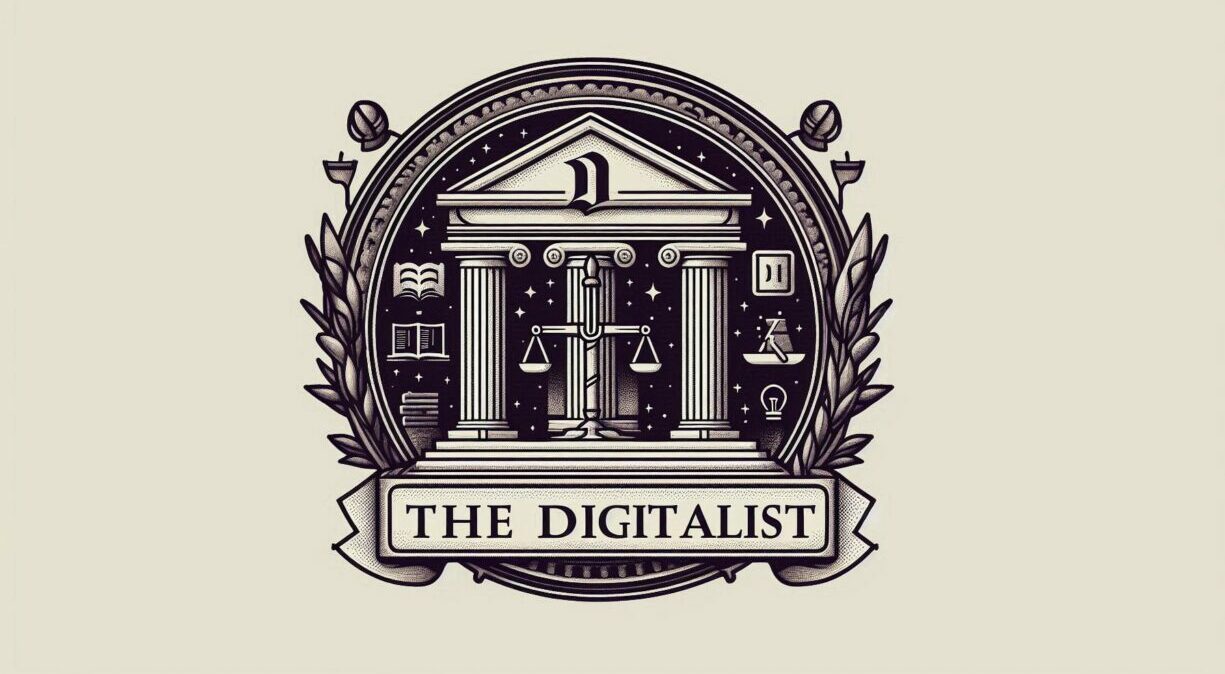The Misunderstood “Author”: A Proposal for Semantic Severance in the Copyright Act | Vol. 31, No. 1
The rise of artificial intelligence (AI) challenges foundational assumptions of copyright law, particularly the requirement of human authorship. In Thaler v. PerlmuGer, the D.C. Circuit affirmed the U.S. Copyright Office’s denial of registration for an AI-generated artwork, holding that the Copyright Act’s use of “author” inherently requires human creativity. This Note critiques Thaler’s statutory interpretation and proposes a novel framework to reconcile AI’s disruptive potential with copyright’s human-centric purpose. First, it argues that the court erred in conflating the statutory term “author”—a legal fiction encompassing corporate entities under work-made-for-hire doctrine—with colloquial “authorship,” which denotes creative origination. By dissecting provisions of the Copyright Act such as § 201(b) and § 302, this analysis demonstrates that Congress deliberately decoupled the “author” status (which denotes legal ownership) from “authorship” (which denotes human creativity). Second, this Note warns that rigid adherence to Thaler’s logic risks enabling AI to exploit corporate personhood doctrines, thereby circumventing the human authorship requirement. To safeguard copyright’s constitutional purpose, this Note advocates for a semantic severance: explicitly acknowledge “author” as the legal term of art it is, separate from colloquial notions of authorship. This approach balances innovation with copyright’s goal of promoting creativity for the public’s benefit, ensuring AI serves as a tool for—not a replacement of—human expression.
Student Activity Monitoring and the First and Fourth Amendments: Exploring the First Amendment’s Overlooked Potential to Protect Students from Surveillance | Vol. 31, No. 1
As technology becomes more sophisticated, our government engages in more online surveillance—this is nothing new. But because of the broad and opaque nature of government surveillance, many of us don’t know if this surveillance is directly affecting us. Though we may be uneasy, the possibility that we ourselves are targets is “highly speculative,” as the U.S. Supreme Court reassured us in Clapper v. Amnesty International USA. American public school students have a different reality. For many students whose schools have contracts with private surveillance companies, the notion that they are being watched is far from speculative—it is certain. In fact, public schools boast about their constant surveillance of students, which involves combing through their documents, emails, chats, browsing history, and more, during and outside of school hours. Schools assure parents, community members, and students themselves that such pervasive monitoring is necessary for safety and mental health. This Article questions the ability of student surveillance to achieve its purported goals, and it outlines four core harms of such surveillance: a degradation of privacy, a chilling effect on expression, the normalization of surveillance, and discrimination. Next, it explores avenues by which the legality of such surveillance has been challenged. It concludes that none of these avenues has been effective thus far. Therefore, this Article analyzes a surprisingly underexplored mechanism to challenge student surveillance: the Constitution. In particular, it examines current First and Fourth Amendment doctrines, assessing their respective abilities to address the harms of these technologies. Because of the Fourth Amendment’s potential to address surveillance after Carpenter v. United States, it may seem natural for a Fourth Amendment challenge to student surveillance to be more successful than a First Amendment one. But this Article concludes that because of the especially important expression and informational harms implicated by school surveillance, the First Amendment has more potential to tackle the harms that surveillance has on students.
Reclaiming the Marketplace of Ideas from the Digital Cauldron of Illicit Loves: Protecting Free Speech While Moderating Content on Social Media Platforms | Vol. 31, No. 1
The Internet has become an indispensable part of modern life, facilitating, among other things, communication, work, news, and entertainment. The volume of user-generated content, particularly on social media, is mind-numbing. Harmful content within this vast collection of material proliferates, yet efforts to regulate online speech are stymied by First Amendment protections and Section 230 immunity. We propose a path forward with a time, place, and manner restriction on the volume of online speech—a proposal that aims to balance the benefits of online expression with the need to mitigate its harms by introducing a regulation framework that incorporates societal interests. Our approach offers a vision for a more sustainable digital ecosystem while promoting the foundational principles behind First Amendment free speech protections.
Getting AI Right: A 2050 Thought Experiment | Vol. 30, No. 2
The author concludes the volume with an ambitious agenda for the future, envisioning a society in 2050 where AI has been broadly beneficial. He outlines grand challenges across the AI pipeline, emphasizing ethical development to maintain democratic integrity and public trust. The vision focuses on human flourishing in a world enhanced by AI.
Informational GPS | Vol. 30, No. 2
The authors emphasize the importance of broad access and individual agency in realizing AI’s potential benefits. They compare AI to GPS technology and propose strategies to develop equitable and inclusive AI systems that build societal trust and deliver benefits to billions of people.
Techno-ideologies of the Twenty-first Century | Vol. 30, No. 2
The authors advocate for an inclusive, participatory framework that integrates diverse perspectives and fosters collaboration between technology and human society. They emphasize the importance of ecological and religious considerations in shaping a balanced future, offering an alternative to the dominant techno-ideologies of Libertarianism and Technocracy.
Generative AI and Political Power | Vol. 30, No. 2
As people come to rely on AI tools to answer questions, they will likely use those tools to answer political questions as well. The answers that the AI companies choose to provide, the author argues, may thus subtly but substantially influence public attitudes and, therefore, elections—especially to the extent Big Tech has been shifting from a “user sovereignty model,” in which tools (word processors, browsers, search engines) were intended to be faithful servants of the user, to a “public safety and social justice model,” in which tech tools (social media platforms, AI assistants) are designed in part to refuse to output certain answers that their creators think are dangerous or immoral. What should we think about that?





